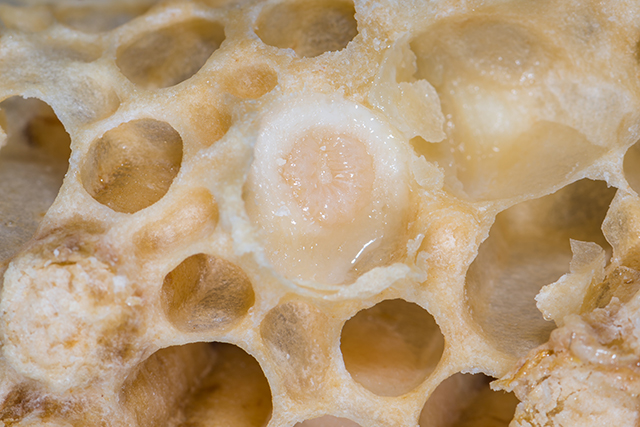Top 6 ways to heal thyroid disease
06/26/2024 / By News Editors

Discover protocols that could lead you into thyroid disease remission
(Article republished from GreenMedInfo.com)
I didn’t always want to be a thyroid pharmacist! In fact, I didn’t have much interest in the thyroid until my own thyroid diagnosis in 2009. This diagnosis came after almost a decade of some pretty life-altering symptoms. I was so fatigued I had to sleep for 12 hours each night just to feel human. My sharp mind that kept me on the honor roll during my doctorate program studies was not so sharp anymore! I began to have brain fog and started being forgetful… and then there was the intense anxiety…
I remember levels of anxiety so bizarre that my husband couldn’t go for a jog without me thinking he’d been hit by a car or left with some woman!
I was in pain pretty much everyday, and I ended up being diagnosed with carpal tunnel in both arms. I wore braces on my arms and eventually had to resign from my job because it involved too much computer time. I had irritable bowel syndrome and acid reflux and went to so many doctors, I felt like I had more doctors visits than visits with friends!
Some doctors told me that there was nothing wrong with me, other doctors said it was all in my head and suggested antidepressants, other doctors told me that everyone was tired and stressed. One of the most amusing answers I got from a health care professional was “You’re just getting older”.
Did I mention that I was only 25 years old at the time?
When I first got my diagnosis, I finally felt validated, but sadly, the doctors still didn’t have many solutions for me. I was prescribed synthetic thyroid hormone (Synthroid, the #1 selling drug in the US in 2 of the last three years).
Taking medications wasn’t really a big deal for me, after all, I was a trained pharmacist. The only problem was that the medication didn’t do much for most of my symptoms- instead of sleeping 12 hours, I was only sleeping 11! And it did absolutely nothing to address the underlying cause of my condition, which was an autoimmune attack against my thyroid gland!
Before my diagnosis, I was very skeptical towards natural healing, but I had exhausted my options in conventional medicine and knew there had to be more than what the doctors were telling me.
I believe in cause and effect, and I couldn’t shake this feeling that all my symptoms were somehow connected. I felt like I was doing something to evoke these symptoms, but I was doing everything I knew to do to be healthy: exercising, eating low-fat dairy, and whole grains, yet I was very sick.
I took my pharmacy training and poured it into researching Hashimoto’s.
I came across the gluten and thyroid connection, and I found that people with Hashimoto’s antibodies who went on a gluten-free diet were eliminating thyroid antibodies within 3-6 months.
Their antibodies were no longer attacking their thyroid, and they’d normalized their thyroid function. Some of the people didn’t even need thyroid medications anymore. I was fascinated by this information, but I was trained that gluten-free diets were only beneficial for people with Celiac disease and I tested negative for Celiac. I was so skeptical, that it took me about a year to go gluten-free because I wanted to research more studies and go to all these different specialists before I gave it a try.
When I finally decided to take a plunge and charge of my health, things started turning around really quickly.
I bit the bullet and did a food sensitivity test- and it was positive.
It was my wake-up call because now it was in black and white. I was sensitive to gluten and dairy. I removed both from my diet, and within three days my acid reflux was gone. After that, I became a convert to changing nutrition, looking at root causes of symptoms, and was able to eliminate all of my symptoms and reduce my thyroid antibodies! I dug through each layer and was eventually able to get into remission.
I want to share with everyone who has an autoimmune condition that there are root causes and triggers we can often identify.
Conditions like fibromyalgia, chronic fatigue syndrome, and Hashimoto’s are all friends. They predominantly affect women, and many women suffer on a daily basis when there’s a chance they could go into remission.
What is Hashimoto’s Thyroiditis?
Hashimoto’s sounds like an exotic disease, but it’s not. It’s so common that up to 27% of Americans and up to 34% of Italians may be affected.
Hashimoto’s is the number one reason people have underactive thyroid in the United States, Europe, and most industrialized countries.
Depending on which estimates you look at, 97% of people who take thyroid medication for an underactive thyroid, actually have Hashimoto’s and they just don’t know it.
People hear they have a sluggish thyroid or they’re getting older when, in reality, they have an autoimmune condition. This means their immune system recognizes their thyroid as an enemy and starts attacking it. The continual attacks break down the thyroid gland.
Initially, some people may have symptoms of an overactive thyroid. They’ll experience anxiety, palpitation and they’ll be agitated. They might have hair loss and loose bowel movements.
Once the symptoms stabilize, they swing to the next spectrum of underactive thyroid. They won’t be able to lose weight. You’ll see people exercise and eat the same, yet continue to gain weight. This happens because the thyroid controls the metabolism.
Common Symptoms
Thyroid hormones affect every single cell in your body. There are hundreds of symptoms linked to having an underactive thyroid. In the surveys I’ve conducted, the top three biggest issues are trouble losing weight or holding onto excess weight, fatigue, and mood changes like brain fog, apathy or depression.
You might also experience cold intolerance. Let’s say you’re in Southern California on a beautiful day and everybody is wearing shorts, but you’re wearing a ski jacket. That’s a pretty solid sign something is off with your thyroid 🙂
Women find the hair loss especially distressful. I remember not being able to keep the hair on my head! Every time you brush, more and more hair comes off.
Mood symptoms are very common and misdiagnosis of depression with anxiety often occurs. I’ve seen people hospitalized with bipolar disorder and psychosis because of overactive or underactive thyroid issues.
Others have reported less stressful symptoms like not sweating as much and not growing body hair, though most don’t complain about these symptoms!
What causes Hashimoto’s?
For Hashimoto’s to occur, three factors need to be present: the person has to have the right genes, the right trigger, and intestinal permeability. This has been described as the “three-legged stool of autoimmunity”. People who have the first leg of the stool, the genetic predisposition, will only develop autoimmunity if leg two and three are also present.
The trigger, or second leg, can be an infection, a toxin, a nutrient deficiency and even stress. There are various potential “root causes“.
The third “leg” of the puzzle is intestinal permeability, also known as leaky gut. Many autoimmune conditions start with irritable bowel syndrome, acid reflux, bloating and constipation. These symptoms allude to intestinal permeability, although some people do not manifest any symptoms.
It takes a perfect storm for autoimmunity to develop. In most cases, people are under a significant amount of stress and stress weakens our immune systems. The body becomes more susceptible to toxins, infections and triggers and the breeding ground for autoimmunity is formed.
The exciting this is, if you remove one of these two legs, then Hashimoto’s goes into remission. Since you can’t remove your genes, we look at ways to remove the other two legs.
How is Hashimoto’s best diagnosed?
Unfortunately, a lot of doctors use a standard screening test known as the TSH test, otherwise known as thyroid stimulating hormone test. For years doctors kept telling me everything was normal, but when I got copies of my lab tests, I noticed the “normal” was an outdated range. In fact, my labs were showing that my numbers were in range for somebody with thyroid disease!
Researchers determined the normal TSH ranges by gathering blood work from a panel of “healthy” people. They measured the average, but there was a problem. Since thyroid disease is so common, many of the “healthy” people actually had undiagnosed thyroid disease.
Most people feel optimal when their TSH is between 0.5-2, but doctors may not notice unless a TSH is above 4.5. My doctor actually missed my hypothyroidism when my TSH was 4.5 and I was sleeping for 12 hours each day, I was told that my thyroid was just fine!.
The other problem with the TSH test is that it may not show changes until someone has had Hashimoto’s for 5-10 years.
The truth is, there are better tests you can do that will show if you have a thyroid condition. The best tests I recommend are the thyroid antibody tests. There are two, inexpensive tests you can request your doctor to administer. You’re testing thyroid peroxidase antibodies, known as TPO antibodies and the thyroglobulin antibodies, known as TG antibodies. These tests often reveal elevated levels 10 years before you see a change in your TSH.
I recommend everyone get tested for these. Depending on the statistics you look at, roughly 20%-30% of the population will have these kinds of antibodies. If you’re experiencing symptoms and you catch these antibodies early, before medications, you can avoid a lot of damage to your thyroid. You can prevent these symptoms and prevent taking medication for the rest of your life. You can also minimize the chances of developing other autoimmune conditions. These tests are worth it.
My recommendations: I encourage you to get a copy of your labs and get tested. I’m talking about a full panel and not just the TSH test because that test can be all over the place. The TSH test is not a direct measure of the autoimmune attack on your thyroid, and it’s not a direct measure of what’s actually happening inside your thyroid.
Transformative Hashimoto’s Protocols
If you only have thyroid antibodies, I would start with your diet. I’d look to see which foods are causing inflammation. Gluten, dairy, and soy are the biggest foods that confuse your immune system and cause it to attack your thyroid.
I’d recommend removing these three from your diet for at least three months. After three months, re-measure your antibodies, and see if there was an improvement. Usually, 10-20% of people that remove these foods see their antibodies go back to normal range. For some, food sensitivities are the root cause.
Others may have more than one root cause. It’s like peeling back an onion, layer by layer. I often find nutrient deficiencies, food sensitivities, infections, an impaired stress response, and an impaired ability to remove toxins as primary root causes.
#1 Nutrition
Proper nutrition is one of the foundations of recovering our health. Beyond gluten-free, I often recommend a nutrient dense diet like the Paleo or the autoimmune Paleo diet.
If you’re new to this community, all these diet ideas and protocols might sound like a lot. I encourage you to break it down into manageable steps. Start with nutrition by getting on a clean, anti-inflammatory diet, and make sure you’re eating organic. Everybody is different, so I recommend tailoring your diet as you go along as it’s a bit of a learning curve when you initially begin.
A lot of people go gluten-free and buy all this gluten-free junk food. It’s corn and rice based which then sets off the blood sugar swings. Blood sugar imbalance is another symptom associated with Hashimoto’s. People think they are eating healthy when it’s really fueling the antibody attack. I recommend people balance their blood sugar, eat good fats and healthy protein with every meal, and try to limit carbohydrates.
You can get better, but you have to be the one driving the car. As you begin changing your diet, pay attention to what you’re reacting to. The Elimination Diet does a great job of teaching you about your food sensitivities. I used to eat dairy multiple times a day, and I never knew it was harming me. Your body will tell you exactly what it needs and what causes issues. You’ll even get cravings when you’re deficient in nutrients. You can get in sync with your body so be kind to it because we only have one!
#2 Nutrient Deficiencies
Next, I look at different nutrient deficiencies. The top deficiencies in Hashimoto’s are selenium, B12, and ferritin, which is a storage hormone for iron. Selenium deficiency is a trigger for Hashimoto’s.
Replenishing selenium helps alleviate anxiety and even balances blood sugar. Dosages of 200 mcg have been found to reduce thyroid antibodies by about 50% over a course of 3 months.
People with Hashimoto’s often have low stomach acid which can put them at risk for a deficiency in B12. Low levels of B12 can lead to anemia, impaired digestion, inflammation and underdevelopment of villi. Villi house our digestive enzymes. You can find this nutrient in proteins but not usually in plants. I recommend that vegans and vegetarians take a supplement to ensure they aren’t deficient.
The transport of T3 to cell nuclei and the utilization of the T3 hormone requires ferritin. It’s also the storehouse for iron. Our bodies don’t make iron so we must ingest it and when we do, it needs a place to live. When our levels of ferritin are low, you’ll see an increase in hair loss. I remember when I was deficient, I couldn’t keep my hair on my head!
#3 Adrenal Function and Your Mindset
A big player in thyroid function is adrenal function. Adrenals are tiny little glands that produce our stress hormones and alterations in these hormones are often found in Hashimoto’s.
Symptoms of stress hormone imbalance include, but are not limited to, feeling overwhelmed, tired despite adequate sleep, difficulty waking up in the morning, extreme salty food cravings, low blood pressure, feeling faint when getting up quickly, mental fog, alternating diarrhea/constipation, low blood sugar, decreased sex drive, slowed healing, mild depression, and mood symptoms, feeling worse after skipping meals, increased PMS, poor concentration and poor memory.
I encourage you to look for ways to reduce stress because stress is a major player in adrenal dysfunction. The state of our emotions and our mindset need to be in line for us to heal properly. People often think they only need to take care of the body, but healing comes from mind and body. If we’re stressed, our body is in fight or flight mode. We’re not resting, digesting or rebuilding. We’re not allowing our body to refuel. I have to admit, getting into the right mindset is always easier said than done.
Choosing to be positive and grateful will set you up for success and remission in Hashimoto’s.
#4 The Gut
I’m passionate about gut infections and the role of the gut microbiota in Hashimoto’s and autoimmunity. I think part of my passion stems from having lived through it. I’m grateful for my journey because now I get to help others.
There’s a lot of research supporting the impact our gut bacteria has on autoimmunity. I’ve noticed that balancing your microbiota helps Hashimoto’s. You can do this by taking probiotics, eating fermented foods and eliminating starchy, sugary foods. Take digestive enzymes to help break down foods that feed the good bacteria and not the bad bacteria and that stabilize your reaction to the gut microbiota. Gut bacteria can cause intestinal permeability if they’re off balance.
#5 Infections
If you’ve eliminated inflammatory food and taken probiotics and still don’t feel well, try looking at gut infections. If you work with a functional doctor, they can test you. Gut infections often cause food sensitivities. I’ve seen people on restrictive diets that continue to lose foods and a lot of times it’s because of a gut infection.
The most common infections that I tend to see are H. pylori, small intestinal bacterial overgrowth (SIBO), and parasites.
A study found 54% of people with hypothyroidism had SIBO. Research links H. pylori to Hashimoto’s and thyroid antibodies. I’ve had a few clients go into remission after treating H. pylori, their symptoms disappeared, and their thyroid antibodies dropped below 35.
Parasites stir up a lot of controversies, some people don’t think people in the Western world have them- we do! 80% of my clients who don’t get into remission with diet test positive for parasites on stool tests!
Other people insist that parasites can’t possibly cause autoimmune disease because they have been found to balance the immune system. But this is only partially true, just as we have good bacteria and bad bacteria, we also have good and bad parasites.
We have parasites that help protect our gut lining and modulate and calm down our immune system. Then we have parasites that cause intestinal permeability and cause immune system confusion.
#6 Support Your Pathways
A lot of people can’t get rid of toxins properly. Supporting detoxification pathways is critical. I always start clients on a gentle liver support detox. This gets their bodies ready for healing. It helps push toxins out as we begin flooding the body with much needed nutrients. It’s not an intense detox, and it’s designed to support your body.
Part of the liver support detox is a green smoothie that I love. I call it the Root Cause Green Smoothie Recipe because once you remove initial toxins, you’re better able to dig for root causes.
Baby Steps
If you’re new to this lifestyle then jumping into a Paleo diet will be overwhelming. Start with gluten, dairy, and soy-free. It will be an easier transition. Eat organic vegetables and small, low glycemic index fruits and organic, grass-fed, free range meats. Grain-free is a big commitment, so take these baby steps toward changing your eating habits to healthier living. If you try this for three months and don’t see improvement, consider moving onto the Paleo diet.
With some people, they go gluten-free and dairy-free and soy-free and things turn around quickly. Sometimes it’s as quick as 90 days. With other people, they may need to do a little bit more digging. They may need to address nutrient depletions and gut infections, and that can take months to two years to stabilize. In other people, they have toxins they need to remove. People who have had mercury fillings, or have toxic exposure through their occupations, may have a longer road back to health.
3 Things I’ve Learned that I Wish I Learned Sooner
- Healing starts with your mindset.
- You have to take charge of your health because no one is going to do it for you.
- Food either works for you or against you.
Moving Forward Today
You want to keep moving forward. Celebrate small victories and give yourself the gift of healing.
Invest in yourself because you deserve to get better. Don’t feel bad for taking care of yourself.
When I was really sick in 2011, I worked part time so I could get better. I spent a lot of money on different treatments, and it was worth it because now I feel amazing, and I can follow my passion to help others. I wouldn’t be able to do this if I’d not taken the time to invest in myself, spend time with functional medicine doctors, or done the necessary testing research. I let myself heal and rest.
I encourage you to prioritize yourself and your healing journey. Women especially take care of everyone else before they take care of themselves. We’re often very hard on ourselves so today, right now, start being your best friend. Start taking charge of your health because you are worth it.
Read more at: GreenMedInfo.com
Submit a correction >>
Tagged Under:
alternative medicine, autoimmune disease, detox, disease treatments, food cures, food is medicine, food science, gluten, gluten-free diet, gut health, hashimotos disease, health science, natural cures, natural health, natural medicine, nutrients, nutrition, paleo diet, remedies, thyroid disease, thyroid health, tips, truth, Xpost
This article may contain statements that reflect the opinion of the author
RECENT NEWS & ARTICLES
consumerwellness.info is a fact-based public education website published by consumerwellness.info
All content copyright © 2023 by consumerwellness.info
Contact Us with Tips or Corrections
All trademarks, registered trademarks and servicemarks mentioned on this site are the property of their respective owners.




















